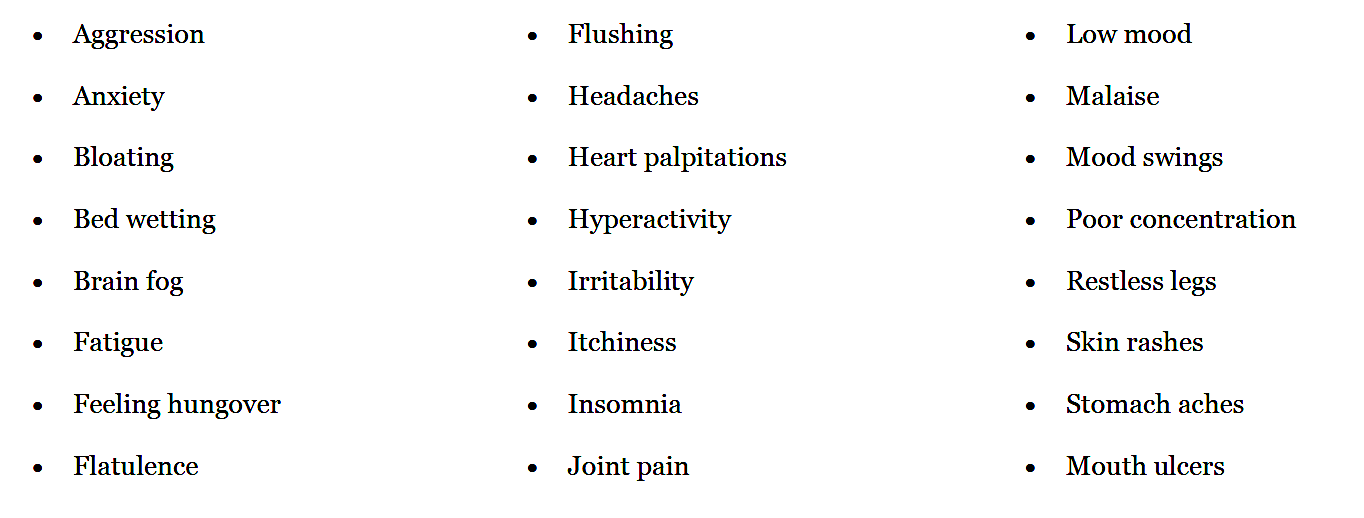Symptoms | Related Conditions | Common Types | Histamine Sensitivity
While incredibly common, food intolerances are also one of the most poorly recognised and addressed health problems in the medical world. Between 2011 and 2012 the Australia Bureau of Statistics Health Survey recorded that up to 25% of women and 16% men reported avoiding food due to a food reaction. However it is difficult to know how common food intolerance actually is because reactions can be cumulative and delayed.
Food reactions can show up as a range of SYMPTOMS including;


Food reactions can also be a hidden driver behind a range of HEALTH CONDITIONS including;

Food reactions and intolerances exist in many different TYPES and FORMS, here are some of the most common ones.
FODMAP INTOLERANCE is typically associated with symptoms of digestive discomfort like bloating, excess wind, constipation or diarrhoea. It often features in gastrointestinal conditions like Irritable Bowel Syndrome and Inflammatory Bowel Diseases like Crohn’s Disease.
SPECIFIC FOOD INTOLERANCES often occur to the foods we eat most often. Some propose that these reactions are mediated by IgG antibodies which form immune complexes with food antigens and deposit in various tissues, triggering a range of different symptoms. We can develop specific food intolerances to any food and symptoms range broadly from stomach aches, to headaches, to joint pain, to depression. In the case of specific food intolerances, tolerance is often restored by eliminating the food from the diet for a period of time.
FOOD CHEMICAL SENSITIVITIES include reactions to natural chemicals (i.e. amines, salicylates and glutamates) found in food as well as synthetic food additives. Food chemical sensitivity can affect any part of the body and brain and are typically delayed and difficult to detect. One study by the RPAH Allergy Unity (who pioneered research into food chemical sensitivity), tested individuals with conditions like migraines, IBS, behavioural disorders, eczema and urticaria for common food intolerances as well as food chemical sensitivities. They found that food chemicals were a trigger of symptoms for most of these people. However it was interestingly to note that only 50% of those who were shown to be reacting to foods had previously suspected a food sensitivity.
REFERENCES
Gaby, A.R. (1998). The role of hidden food allergy/intolerance in chronic disease. Alternative Medicine Review, 3 (2), 90-100.
Loblay RH, Swain AR. (1986). Food Intolerance. In Wahlqvist ML and Truswells (Ed.). Recent Advances in Clinical Nutrition (Vol 2, pp. 169-177). London, John Libbey.
















